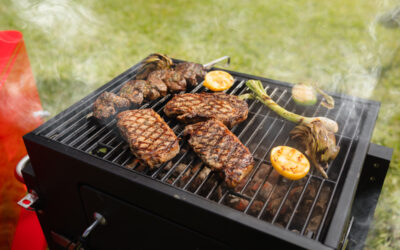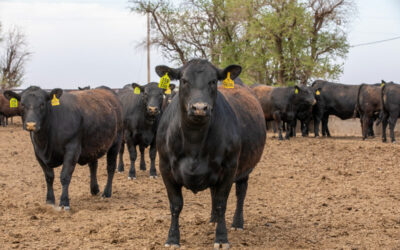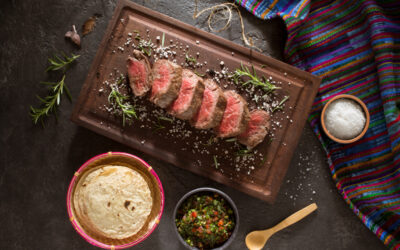

MARKET UPDATE
Weekly cash-fed cattle values have continued to deteriorate in the wake of the oversold Live Cattle futures. Our update two weeks ago featured the idea that the two latest Cattle on Feed reports had generated an overreaction in rapidly devalued futures prices. That condition only worsened beginning on the Friday after Thanksgiving through Monday this week. Looking at the February 2023 Live Cattle contract reveals a 14% decline in value from September 1 through December 4. Both of the up-front December and February contracts were valued at $168/cwt. on Tuesday of this week.
Without getting too emotionally vested in this news, it’s intuitive that the December contract is misaligned with the cash market, established last week at $174/cwt. Certainly, very few on the live cattle side of the market agree that this cash value is representative of where cash values should be today, but it’s $6/cwt. more realistic, to the upside, than futures.
On a positive note it appears that high quality beef is in demand and buying interest for wholesale boxed beef held firm to slightly higher price points in the week since Thanksgiving. Price spreads are creating separation based on carcass quality as the Choice/Select spread charted $30.17/cwt. again last week and the CAB/Choice spread widened by $1.60/cwt. to average $18.15/cwt. on Urner Barry’s report. Of particular interest to our readers is the Prime/Choice spread, last quoted by USDA at $28.59/cwt. A year ago the Prime cutout was wildly inflated to $67.87/cwt. over Choice.
End meats, particularly round items, are currently pulling carcass cutout values lower as seasonal price weakness is noted. Spot market attention is focused on middle meats, where most of the upward pricing pressure is observed in latest data. CAB tenderloins were quoted last week at a record-high $18.85/cwt. wholesale, $2.30/cwt. higher than a year ago. Ribeyes have regained buying interest and higher prices last week as well at a wholesale market average of $14.00/lb. Strip loins round out the middle meat trifecta, moving swiftly higher to $8.38/lb. last week since starting November at $7.48/lb.
CARCASS WEIGHTS HIT RECORD HIGHS
Few things in cattle market trends are entirely predictable but the fact that carcass weights peak in November is as close to a sure bet as one could identify. The typical pattern traces weights to their annual lightest measures in late May or early June. Steer weights then increase roughly 2.3 lb. per week for 24 weeks to culminate in a 51 lb. increase to their November highs.
Annual average steer and heifer carcasses have increased 5 lb. in a decades-long series of data. That relatively stable pattern was upset in 2020 when packing disruptions and subsequent fed cattle backlog sent combined fed cattle weights 26 lb. heavier than 2019. Those of us predicting a downward correction as the backlog subsided were barely correct. Carcasses averaged 878 lb. in 2021, just 2 lb. lighter than the prior year. Even though early 2021 was still marked with heavy backlog-affected cattle, a new frontier for finished cattle weights had been charted. The industry had adjusted to previously unfathomable weights as packers, feeders and truckers adjusted facilities and management to match.
Advancing to 2023, the first four months featured lighter carcasses than the prior year, but then catching up and tracking in line with 2022 weights from May through the fall. Latest USDA data for the week of November 13th reveals new record-heavy carcass weights as the seasonal heaviest point is being sought. Steers for that week hung at an average 936 lb. and heifers pushed the scales at 854 lb. each. Steers climbed 5 lb. on the week prior and heifers jumped a tremendous 8 lb. on the week. These weights could still be bested as the lagging November data is posted in the near future.
Genetic selection for growth and advancing mature size has fueled the long-term increase in carcass weights. As well, average feedlot days on feed have slowly increased year over year. In the short term, feeder cattle replacement costs in a time of declining supplies incentivize cattle feeders to opt for more days on feed for their current inventory when breakevens show net losses in the future.
From an end-product perspective, carcass size has long passed ideal dimensions for middle meats at both restaurant and grocery stores. While ribeyes well above 14 square inches are not desired, there are clear benefits derived from more days on a high energy ration in the feeding phase. The industry as a whole has been winning stronger beef demand for years through a higher quality carcass mix offered to consumers. Premiums have increased, although not linearly, for USDA Prime and CAB carcasses such that the value differences are not to be ignored. At an even more basic level, the current $30/cwt. Choice/Select spread is not just incentive to consider pursuing marbling as an ancilary benefit. Rather, the Select carcass discount is fairly severe punishment for the feeder on grid pricing structures.
Read More CAB Insider
Progress, Not Complacency
Beef demand has been exceptional because of dramatic increases in consumer satisfaction for a few decades. Since taste ranks at the top of the list when it comes to what drives consumers to choose beef, we know where our figurative “bread is buttered.”
Cutout and Quality Strong
Summer weather has begun to set in with more regions of the country set to experience hotter temperatures. This means the traditional turning of consumer focus toward hamburgers and hot dogs rather than steaks, the spring favorite.
Onward with Quality
It’s been a quality-rich season in the fed cattle business with added days on feed and heavier weights continue to push quality grades higher.





